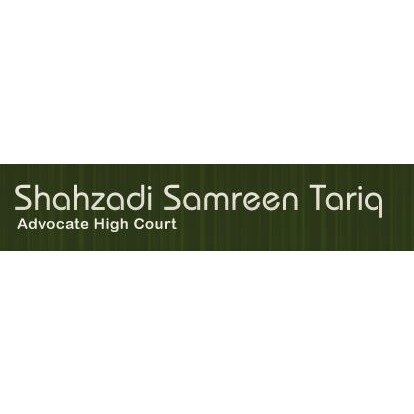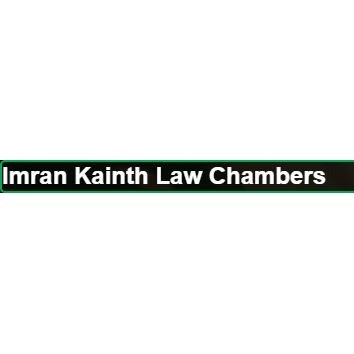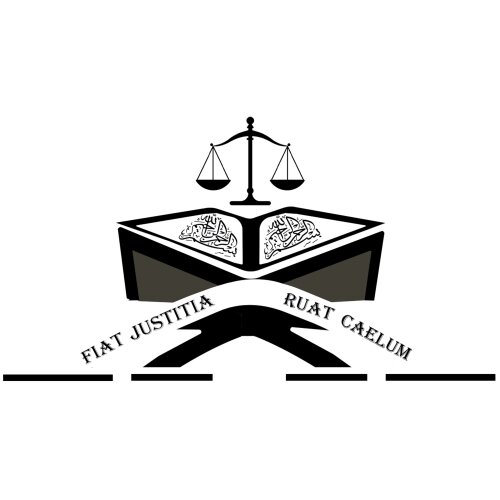Best Energy Regulatory Law Lawyers in Pakistan
Share your needs with us, get contacted by law firms.
Free. Takes 2 min.
Or refine your search by selecting a city:
List of the best lawyers in Pakistan
About Energy Regulatory Law in Pakistan
Energy Regulatory Law in Pakistan governs the production, distribution, and consumption of electricity, oil, gas, and other energy sources. This branch of law is particularly significant due to Pakistan's growing energy demands, ongoing energy sector reforms, and commitments under international agreements. The National Electric Power Regulatory Authority (NEPRA) and the Oil and Gas Regulatory Authority (OGRA) are the two primary government bodies overseeing the regulation of the electricity and oil and gas sectors, respectively. These bodies formulate and enforce regulations, issue licenses, set tariffs, and ensure compliance to promote fair practices, protect consumers, and encourage investment.
Why You May Need a Lawyer
You may require a lawyer specializing in Energy Regulatory Law in Pakistan for several reasons. The energy sector is heavily regulated and often involves complex legal frameworks. Common situations include:
- Starting or operating a power generation or distribution company
- Negotiating power purchase or supply agreements
- Seeking licenses or approvals from NEPRA or OGRA
- Disputes over tariffs, billing, or service standards
- Facing compliance issues or penalties from regulatory authorities
- Understanding investment opportunities in renewable or traditional energy
- Resolving cross-border energy trade matters
- Handling land acquisition or environmental compliance for energy projects
- Challenging or defending regulatory decisions in courts or tribunals
Given the potential financial stakes, regulatory complexities, and the public interest nature of the sector, expert legal advice is often essential.
Local Laws Overview
Energy Regulatory Law in Pakistan is shaped by both primary legislation and regulator-issued rules. The key legal instruments include:
- NEPRA Act, 1997: Establishes NEPRA as the main regulator for the electricity industry, outlining licensing procedures, tariff determination, standards for service, and dispute resolution.
- OGRA Ordinance, 2002: Sets up OGRA to regulate the oil, gas, and LPG sectors, granting it authority over licensing, pricing, and technical standards.
- Electricity Act, 1910 and relevant amendments: Provides the basis for electricity distribution and operational requirements.
- National Transmission and Despatch Company (NTDC) regulations: Govern the state grid and transmission operations.
- Environmental laws: Projects in the energy sector must comply with environmental protection laws and conduct Environmental Impact Assessments (EIA).
These laws require companies and individuals to fulfill licensing conditions, adhere to safety and quality standards, and observe tariff regimes. Non-compliance may result in fines, license suspension, or cancellation. The regulatory framework is evolving, especially to accommodate renewable energy and private sector participation.
Frequently Asked Questions
What is the role of NEPRA in Pakistan?
NEPRA regulates the electricity sector, including generation, transmission, and distribution. It issues licenses, determines tariffs, sets technical and safety standards, and resolves disputes between market participants and consumers.
What is OGRA responsible for?
OGRA regulates the oil, gas, and liquid petroleum gas (LPG) sectors. Its main responsibilities are to issue licenses, determine prices, enforce technical standards, and manage consumer complaints.
Do I need a license to start an energy project in Pakistan?
Yes, all electricity generation, transmission, and distribution projects require a license from NEPRA. Similarly, oil and gas-related activities require licenses from OGRA.
How are electricity tariffs determined?
NEPRA determines electricity tariffs after reviewing the costs, efficiency, and investment requirements of service providers. Tariffs are set to balance consumer protection and sector financial sustainability.
What are the compliance requirements for energy companies?
Companies must comply with licensing conditions, technical and safety regulations, reporting requirements, environmental laws, and tariff notifications as stipulated by NEPRA or OGRA.
Can foreign companies invest in the energy sector in Pakistan?
Yes, foreign investment is allowed and encouraged in Pakistan's energy sector. Investors still must fulfill regulatory requirements, obtain licenses, and ensure compliance with local laws.
What legal remedies are available for consumers with billing or service complaints?
Consumers can lodge complaints with the respective regulatory bodies (NEPRA or OGRA). If unsatisfied, they may seek redress in consumer courts or relevant appellate forums.
What are the legal requirements for renewable energy projects?
Renewable energy projects must secure licensing from NEPRA, fulfill environmental approval requirements, and comply with special incentives or policies issued by the Alternative Energy Development Board (AEDB).
How are disputes in the energy sector resolved?
Disputes can be resolved through regulatory authorities, specialized tribunals, or the courts. Parties may also opt for arbitration, especially if provided for in contracts.
What happens if an energy project violates environmental laws?
Violations can result in fines, project suspension, or cancellation of licenses. Companies may also be required to undertake remedial environmental actions as directed by relevant authorities.
Additional Resources
For further guidance and support in Energy Regulatory Law, the following resources and organizations are recommended:
- National Electric Power Regulatory Authority (NEPRA): For matters on electricity regulation.
- Oil and Gas Regulatory Authority (OGRA): For licensing, compliance, and consumer complaints in oil and gas.
- Ministry of Energy (Power Division and Petroleum Division): For policy updates and sectoral guidelines.
- Alternative Energy Development Board (AEDB): For renewable energy policy and incentives.
- Pakistan Environmental Protection Agency (Pak-EPA): For environmental clearances and compliance.
- Pakistan Bar Council and local bar associations: For finding qualified energy sector legal professionals.
Next Steps
If you require legal advice or representation in Energy Regulatory Law in Pakistan, consider taking the following steps:
- Clearly define your legal issue or regulatory concern.
- Collect all relevant documents, licenses, correspondence, and records.
- Consult a qualified lawyer with expertise in energy sector regulations.
- Verify the lawyer’s credentials and experience in handling energy regulatory matters.
- Prepare a list of questions and desired outcomes before your consultation.
- Engage your lawyer for negotiations, regulatory filings, or representation in hearings, as needed.
Staying informed about regulatory changes and seeking professional legal advice early can help avoid costly mistakes and ensure compliance within Pakistan’s dynamic energy sector.
Lawzana helps you find the best lawyers and law firms in Pakistan through a curated and pre-screened list of qualified legal professionals. Our platform offers rankings and detailed profiles of attorneys and law firms, allowing you to compare based on practice areas, including Energy Regulatory Law, experience, and client feedback.
Each profile includes a description of the firm's areas of practice, client reviews, team members and partners, year of establishment, spoken languages, office locations, contact information, social media presence, and any published articles or resources. Most firms on our platform speak English and are experienced in both local and international legal matters.
Get a quote from top-rated law firms in Pakistan — quickly, securely, and without unnecessary hassle.
Disclaimer:
The information provided on this page is for general informational purposes only and does not constitute legal advice. While we strive to ensure the accuracy and relevance of the content, legal information may change over time, and interpretations of the law can vary. You should always consult with a qualified legal professional for advice specific to your situation.
We disclaim all liability for actions taken or not taken based on the content of this page. If you believe any information is incorrect or outdated, please contact us, and we will review and update it where appropriate.
Browse energy regulatory law law firms by city in Pakistan
Refine your search by selecting a city.

















